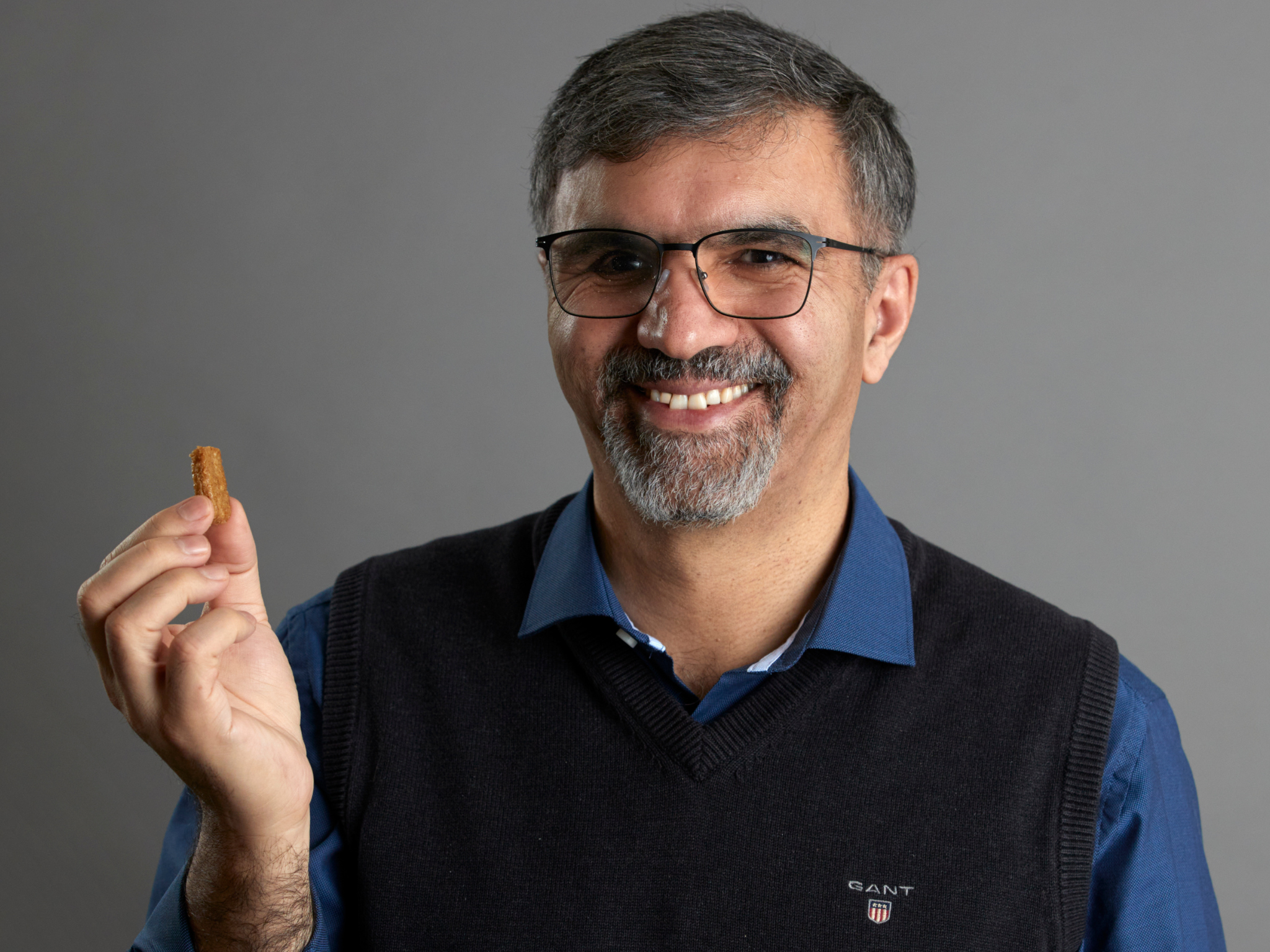
Swedish food tech startup Millow is repurposing a Lego factory to produce an oat and mycelium protein with 97% fewer emissions than beef, and minimal processing.
A result of three decades of research on mycelium, Millow is gearing up for prime time with a future-friendly protein that sits somewhere between tempeh and meat analogues, and is not shy of challenging beef.
The Gothenburg‑based startup is repurposing an old Lego production hall to scale up production to industrial levels, backed by a €2.5M grant from the European Innovation Council (EIC). The 25,000 sq m facility will be fully outfitted later this year and will allow Millow to produce up to 500kg of protein a day.
By refurbishing it into a food factory instead of erecting a new building altogether, it claims to have avoided roughly 1,400 tonnes of embedded CO2 emissions (these are the emissions that would have been released while making and assembling new concrete, steel and façade materials).
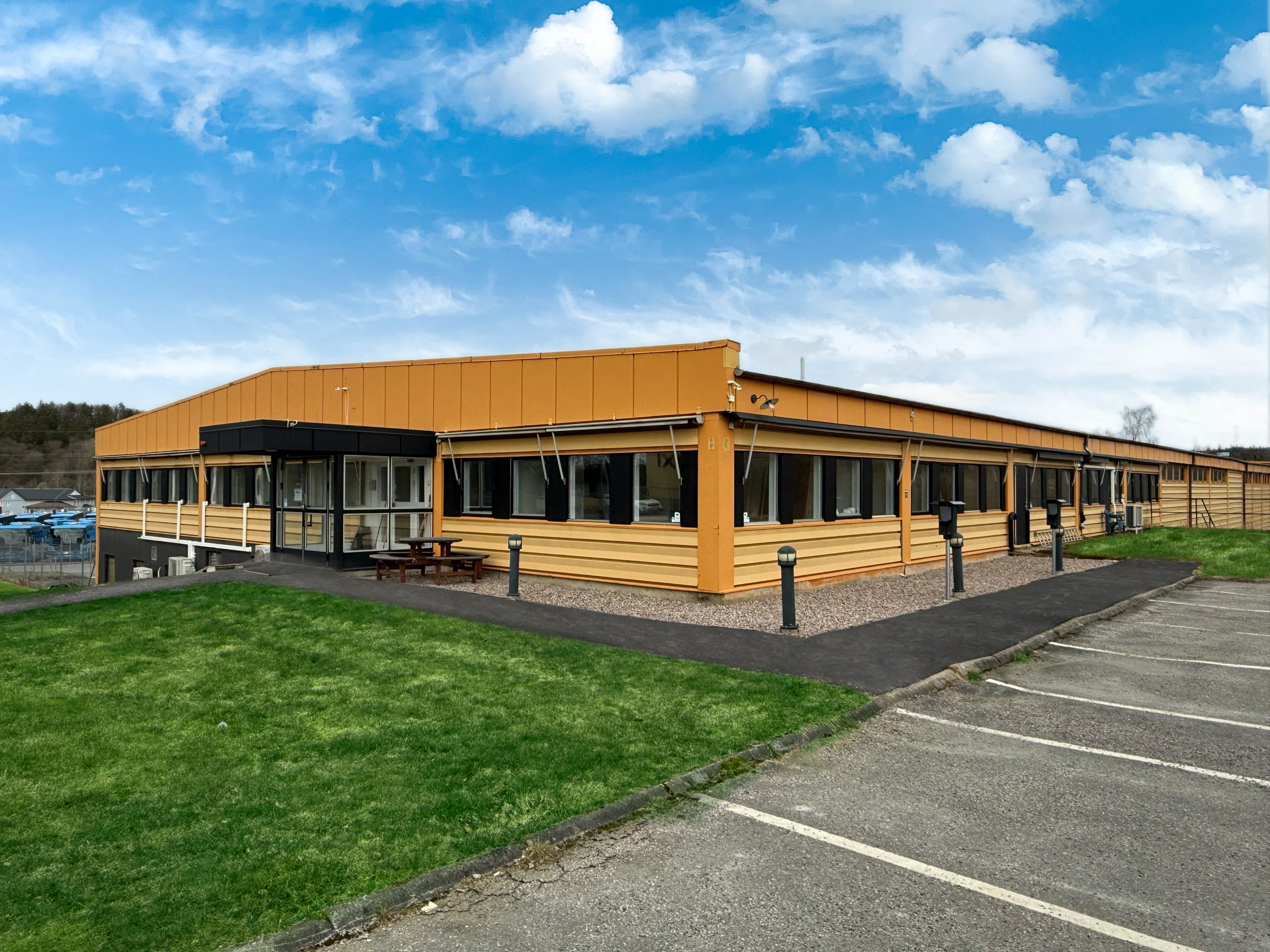
The firm turns Nordic oats and mycelium into a beef-like protein with minimal processing, time, and emissions, while matching or outperforming existing proteins – animal or otherwise – on nutrition and flavour. The key technology is a patented dry‑state fermentation process, which uses just three to four litres of water per kg of protein. This means it requires 99% less water than traditional plant proteins like soy.
“Compared with traditional liquid fermentation used by most other mycelium companies, we only need 2.3% water, one-third of energy, and one-third of capex, and save over 95% of CO2e,” Millow chairman Staffan Hillberg tells Green Queen. “This gives us a cost advantage, allowing our products to compete head-on with traditional products without premium pricing.”
The company is now finalising distribution agreements with brands, retailers, and distributors to launch multiple products in 2025. “We will start to roll out in foodservice in Sweden later this year. And as volumes grow and we have an adequate supply chain, we will enter retail together with our partners such as large food manufacturers.”
How Millow makes its two-ingredient protein
Millow was built on research by Mohammad Taherzadeh, a professor of bioprocess technology at the University of Borås and a renowned mycelium expert. He founded the startup with his son, CEO Esmaeil Taherzadeh, to commercialise the dry-state fermentation tech.
“We have an upstream process where we handle the basic raw material, which, in our case, are oats and mycelium spores,” explains Hillberg. “We are also doing some interesting work on side streams from food production that can replace oats. This then goes into our unique solid-state fermentation process, which is based on our ‘S-units’ that use proprietary and patented hardware and AI-based software.”
He continues: “Following the fermentation process, we have a downstream process that prepares the fermented product. This can, for example, involve simple processes like dicing or slicing, depending on the final product. The process is designed to scale in a modular and cost-efficient way.”
The protein takes less than 24 hours to make, and generates 97% fewer emissions than beef. “Our platform can swap grain substrates overnight, allowing any region to grow its own advanced protein with minimal resources,” explains Prof Taherzadeh.
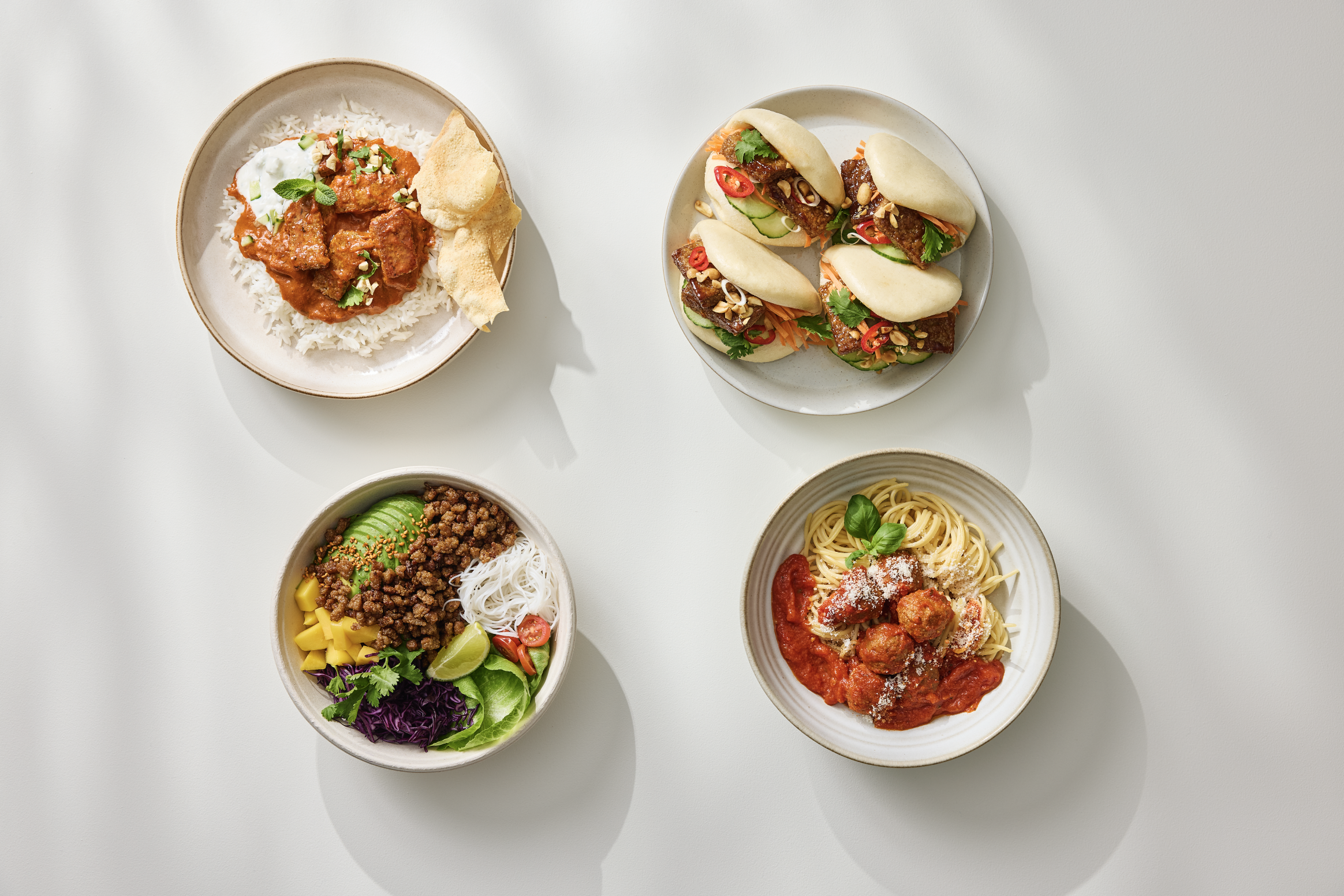
Millow currently sources oats from at least two large suppliers in Sweden, and has the ability to use local suppliers as it scales internationally. “Since our technology is very flexible, we can use basically any type of plant, which gives us many options,” says Hillberg. “Further down the line, we can see our technology being used in countries that lack food production and then using local Indigenous plants.”
The resulting ingredient contains 27g of complete protein per 100g portion, as well as fibre, vitamins, minerals, and only 140 calories. It is said to sear like beef and have no aftertaste or boating effects.
The startup’s business model focuses on end products. “Some of the products we currently have in our portfolio are an amazing minced meat, chicken-like bites, döner kebab, an alternative to dairy ingredients such as paneer for Indian dishes, and of course, as a Swedish company, we have our meatballs,” he says.
Further, Millow’s product has potential as an ingredient in blended meat applications, with retail brands and foodservice collaborators able to combine its mince with conventional meat to lower emissions and improve health outcomes.
Can Millow conquer the alternative protein headwinds?
It isn’t the easiest time for emerging startups in the alternative protein space. Sales have been flatlining or declining, depending on where you are, while investment in these technologies has plummeted alarmingly. The sector suffered a 27% dip in funding last year, following a 44% decline the year before.
Fermentation startups have been the only bright spot in the category, with venture capitalists investing 43% more money into this technology in 2024, though this segment has taken a hit too. Meati, a leader in mycelium fermentation, raised $100M in last year’s largest investment round for alternative proteins, but is now being sold for $4M, after a bank swept two-thirds of its cash reserves due to a technical default.
What makes Millow confident, however, is the ability of its protein to outperform both plant proteins and mycelium competitors. “As we produce a complete food product that contains a combination of fermented plants with mycelium, we have a complete nutritional profile. This includes all the essential amino acids, minerals, fibres, and vitamins,” says Hillberg.
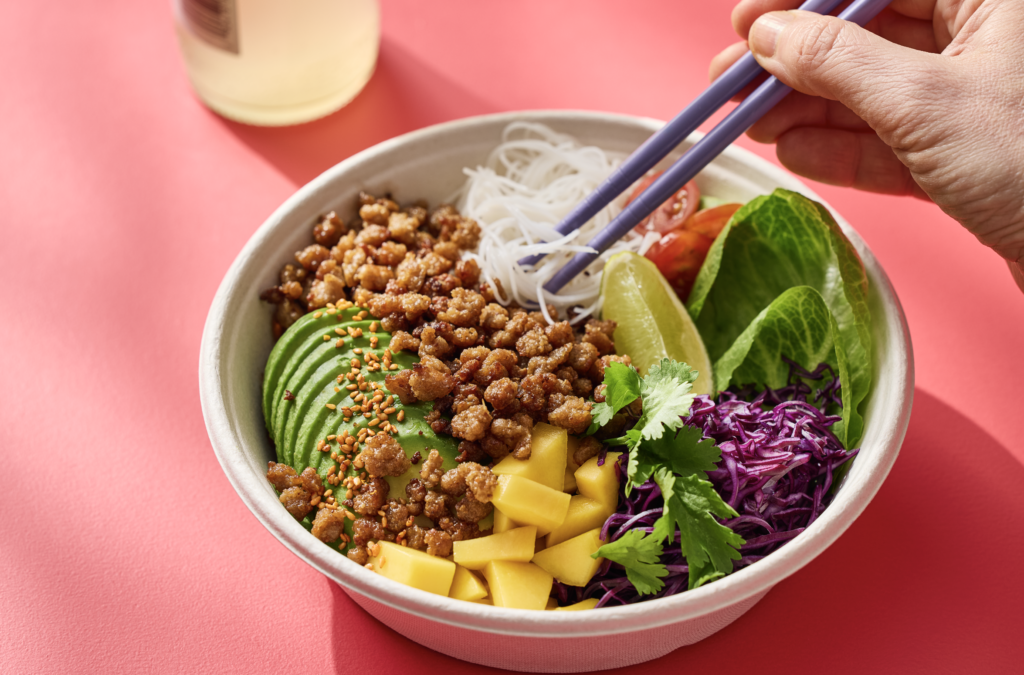
“Further, our technology reduces anti-nutrients like phytic acids, which increases the bioavailability of important vitamins like iron and zinc. There is an iron deficiency among teenage girls adhering to plant-based diets,” he adds.
“We use the natural abilities of mycelium to build a dense and pleasing texture that also handles well when cooking. As such, it doesn’t fall apart when boiling or cooked in a high-temperature oven. Also, we have an appealing taste without the typical off-taste that you find in many other plant-based products.”
The startup is positioning its protein as an additive-free antidote to meat analogues plagued by the ultra-processed food tag. “The wonderful thing with our process is that, compared with most other production processes, we have extremely few production steps,” says Hillberg. “We only have two ingredients: oats and mycelium. There are no binders or other additives. Totally clean label.”
Taking a bite out of the Apple
Millow’s marketing and packaging strategy seeks to communicate the clean-label aspect, especially since two in five Europeans are actively avoiding processed foods, and 60% would like to do so in the future, according to a survey of nearly 20,000 consumers this year.
To build its brand, the firm has hired Rob Janoff, the American graphic designer famous for creating the iconic Apple logo. “Our branding strategy revolves around a ‘Made with Millow’ concept. We are committing significant resources to support our B2B clients in effectively communicating Millow’s unique value to consumers,” explains Hillberg.
“The goal is to ensure consumers feel confident and satisfied when choosing a new category of meat alternatives that are cleaner and superior to conventional meat.”
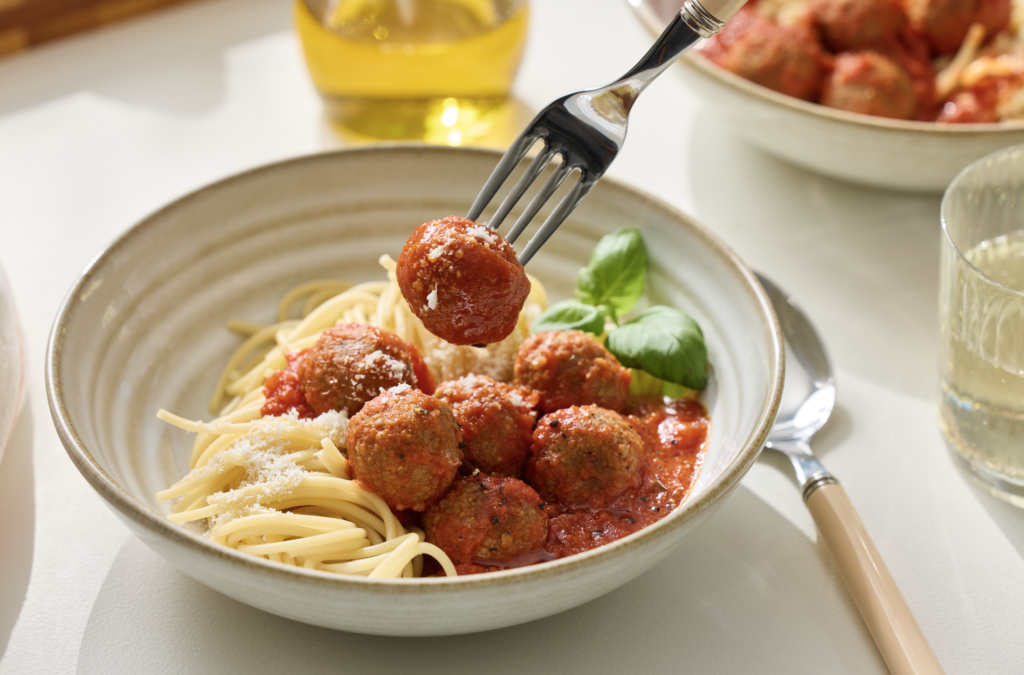
The company is now pursuing co-branding opportunities that will see end products feature the Millow trademark. “This aligns with our clean label strategy and reflects the increasing demand among consumers and partners for minimally processed and transparent food options. The core mission of our science team has been to contribute meaningfully to this new standard in food production,” Hillberg says.
While Millow is funded by its own founders and grants, it is looking to raise capital in the future. The €2.5M EIC grant includes the possibility of a further €15M grant from the European Investment Bank, which can invest in conjunction with external investors.
“Recently, we also received €643,000 in an EU Horizon grant, which is part of a €4M grant in a larger consortium,” says Hillberg. “As we scale further, we can combine debt and equity as our production process is profitable.”
The post This Startup’s Planet-Friendly Solution to Beef & UPFs? Oats, Mycelium & Lego appeared first on Green Queen.
This post was originally published on Green Queen.